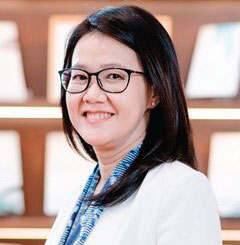JAKARTA: This weekend, Japan is hosting the Group of Seven (G7) Trade Ministers' Meeting in Osaka. The primary focus of the gathering is improving supply-chain resilience and strengthening export controls on critical minerals and technologies. But China's "economic coercion," particularly the widespread disruption caused by its nontransparent and market-distorting industrial policies, is expected to be high on the agenda.
Since joining the World Trade Organization (WTO) in 2001, China has repeatedly been accused of providing unfair industrial subsidies, resulting in multiple WTO dispute cases. In 2006, for example, the European Union, the United States and Canada complained that China was offering export subsidies to its automobile and auto parts industries, primarily through its "export base" programs. The WTO strictly prohibits export subsidies due to their significant trade-distorting effects.
Continue reading with one of these options:
Ad-free access
P 80 per month
(billed annually at P 960)
- Unlimited ad-free access to website articles
- Limited offer: Subscribe today and get digital edition access for free (accessible with up to 3 devices)


